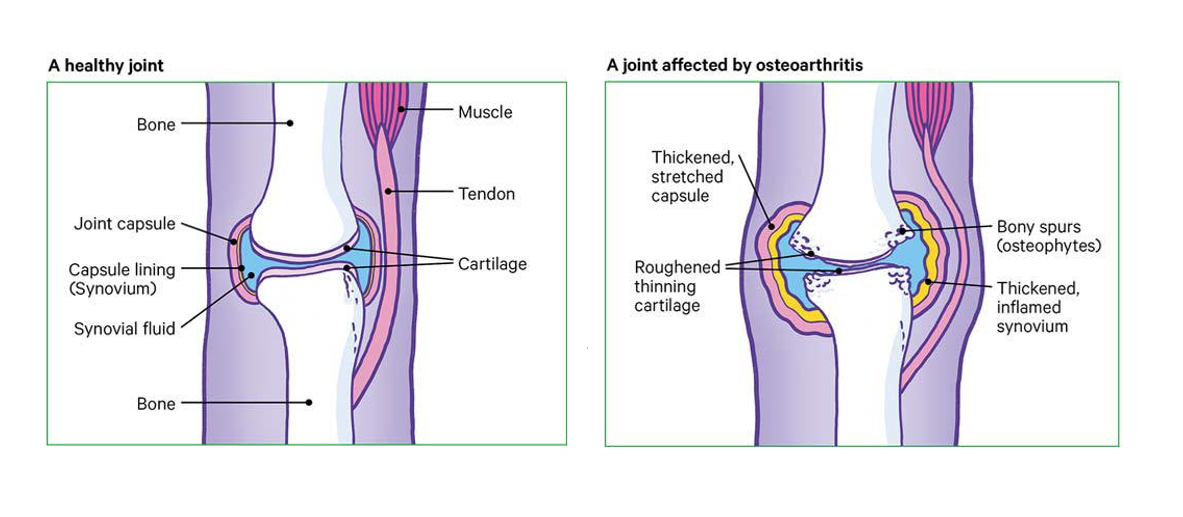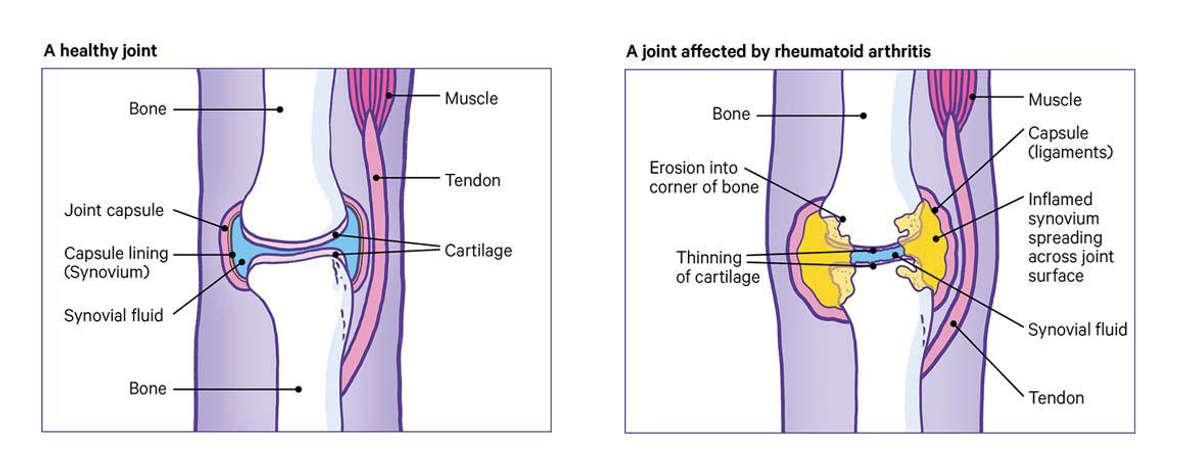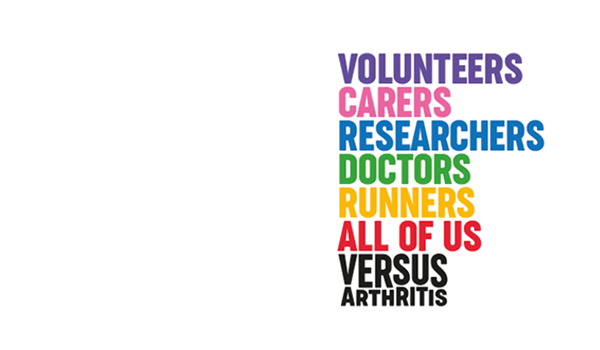Arthritis
What is Arthritis?
Arthritis is a common condition that causes pain and inflammation in a joint.
In the UK, millions of peole have arthritis or other similar conditions that affect the joints. Arthritis can affect people of all ages, including children. The 2 most common types of arthritis are Osteoarthritis and rheumatoid arthritis.
What is Osteoarthritis?
Osteoarthritis is a very common condition which can affect any joint in the body. It's most likely to affect the joints that bear most of our weight, such as the knees and feet. Joints that we use a lot in everyday life, such as the joints of the hand are also commonly affected.
In a healthy joint, a coating of tough but smooth and slippery tissue called cartilage covers the bones and helps them to move freely against eachother. When a joint develops osteoarthritis, part of the cartilage thins and the surface becomes rougher which means the joint doesn't move as smoothly as it should.
When cartilage becomes warn or damaged, all the tissues within the joint become more active than normal as the body tries to repair the damage. The repair processes may change the structure of the joint but will often allow the joint to work normally and without any pain or stiffness. Almost all of us will develop osteoarthritis in some of our joints as we get older, though we may not even be aware of it.
However, the repair processes don't always work so well and changes to the joint structure can sometimes cause or contribute to symptoms such as pain, swelling or difficulty in moving the joint normally.
For more information and to learn about the causes, symptoms, tips for managing pain and living with osteoarthritis, please click HERE

What is Rheumatoid Arthritis?
Rheumatoid arthritis is a condition that can cause pain, swelling and stiffness in joints.
It is what is known as an auto-immune condition. This means that the immune system, which is the body's natural self-defence system, gets confused and starts to attack your body's healthy tissues. In rheumatoid arthritis, the main way it does this is with inflammation in your joints. Rheumatoid arthritis affects around 400,000 adults aged 16 and over in the UK, it can affect anyone of any age. It can get worse quickly, so early diagnosis and intensive treatment are important.
When a joint is affected by rheumatoid arthritis it can cause inflammation inside a joint or a number of joints. Inflammation is normally an important part of how your immune system works, however in the case of rheumatoid arthritis, this inflammation in the joint is unnecessary and causes problems. When the inflammation goes down, the capsule around the synovium remains stretched and can't hold the joint in its proper position. This can cause the joint to become unstable and move into unusual positions.
For more information and to learn about the causes, symptoms, tips for managing pain and living with rheumatoid arthritis, please click HERE


VERSUS ARTHRITIS HELPLINE
You do not need to face arthritis alone - please call Versus Arthritis helpline on 0800 5200 520. Their advisors aim to bring all of the information and advice about arthritis into one place to provide tailored support for you.
They can help with over 200 conditions, including osteoarthritis, rheumatoid arthritis, fibromyalgia, psoriatic arthritis and gout.
Call them on their FREE helpline today! Monday - Friday 9am - 6pm (the helpline is closed from 12:00pm the last Friday of every month for training).
Find out more about their helpline HERE
Don't be afraid to ask for help if you need it! If you'd like to talk to someone, have concerns or want to hear from others with arthritis, they have communities available 24/7 - Online Community, Facebook and Twitter to make sure you are never alone.
Keep Moving - Why Is Exercise Important For People With Arthritis?
It can be hard to keep moving when you have arthritis but staying as active as possible can reduce your pain and the symptoms of your condition, and help you to stay independent.
As well as reducing your pain, exercise can -
- improve your muscle strength which keeps your joints strong and well-supported
- reduce stiffness in your joints
- help your balance
- improve energy levels and feelings of tiredness
- help you manage your weight
- boost your mood
Please find useful information on what type of exercise is helpful, important and how to do it safely HERE
Versus Arthritis Newsletter
Sign up to Versus Arthritis's newsletter for the latest information on research, fundraising and ways to support Versus Arthritis.
Page created: 09 November 2023